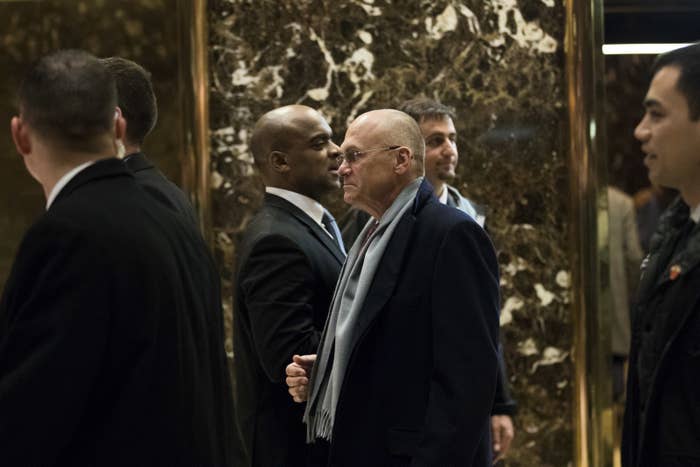
Hardee's and Carl's Jr. CEO Andy Puzder has been nominated to run the Labor Department, Donald Trump announced Thursday — a critical role, given the emphasis the Trump campaign placed on jobs and wages.
Puzder is a high-profile critic of the push to raise the federal minimum wage. He's also proud of his life experience in the fast-food industry, from working on the floor in his youth to running one of the world's biggest chains today. His first job, back when the prevailing minimum wage was “about a buck an hour,” was scooping ice cream.
“One of the proudest days of my life was when the owner of the Baskin Robbins where I worked gave me the keys and said, 'You can open tomorrow.' That meant a lot to me,” Puzder said in a speech this year.
Here are some of his views on the world of work and beyond.
On Replacing Workers With Robots
Why employ humans when you could have a machine do the job? Machines are "always polite, they always upsell, they never take a vacation, they never show up late, there's never a slip-and-fall, or an age, sex, or race discrimination case," Puzder has said.
That may be particularly relevant in fast food, where his restaurant chains can replace cashiers with touchscreen ordering kiosks, but Puzder sees it going well beyond that — and believes all of us contribute to job-killing automation.
“Think about this the next time you use Amazon, Uber, PayPal, a pizza ordering app, pump your own gas or scan your groceries,” he tweeted during a Twitter feud in March, in response to an editorial he had penned on the subject.
On Raising the Minimum Wage
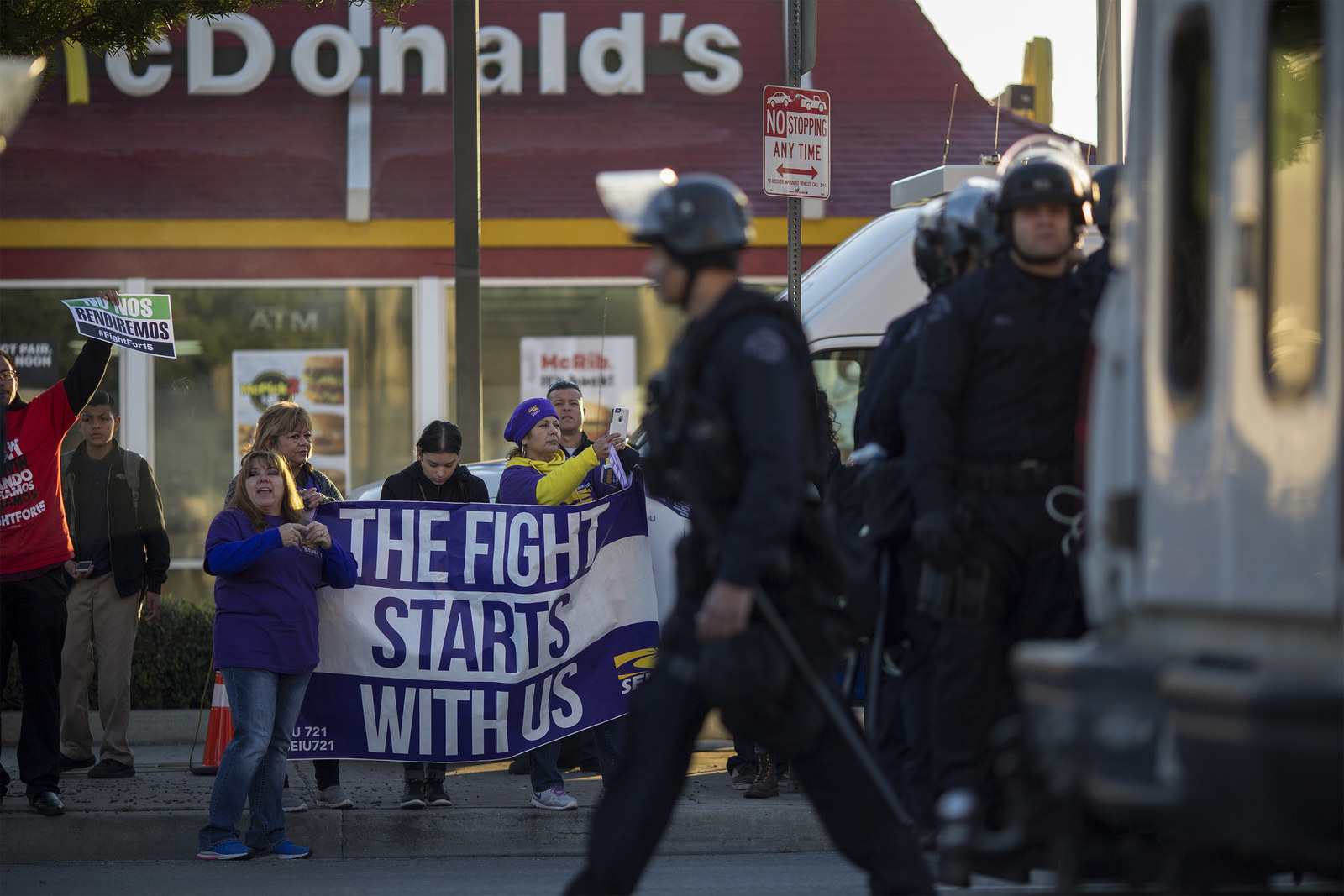
When Obama called on Congress to pass a law raising the federal minimum wage from $7.25 an hour to $10.10, Puzder described the demand as "political, not compassionate," saying that calling for a minimum wage hike is "mostly about safeguarding the jobs of a smaller group of people: congressional Democrats."
"Does it make sense to use the force of law to drive up the cost of employing working-class Americans?" he asked in another editorial. "Instead of creating a living wage, the fight for dramatic minimum wage increases could leave millions with no wage at all."
On the Importance of Semi-Naked Women Eating Burgers
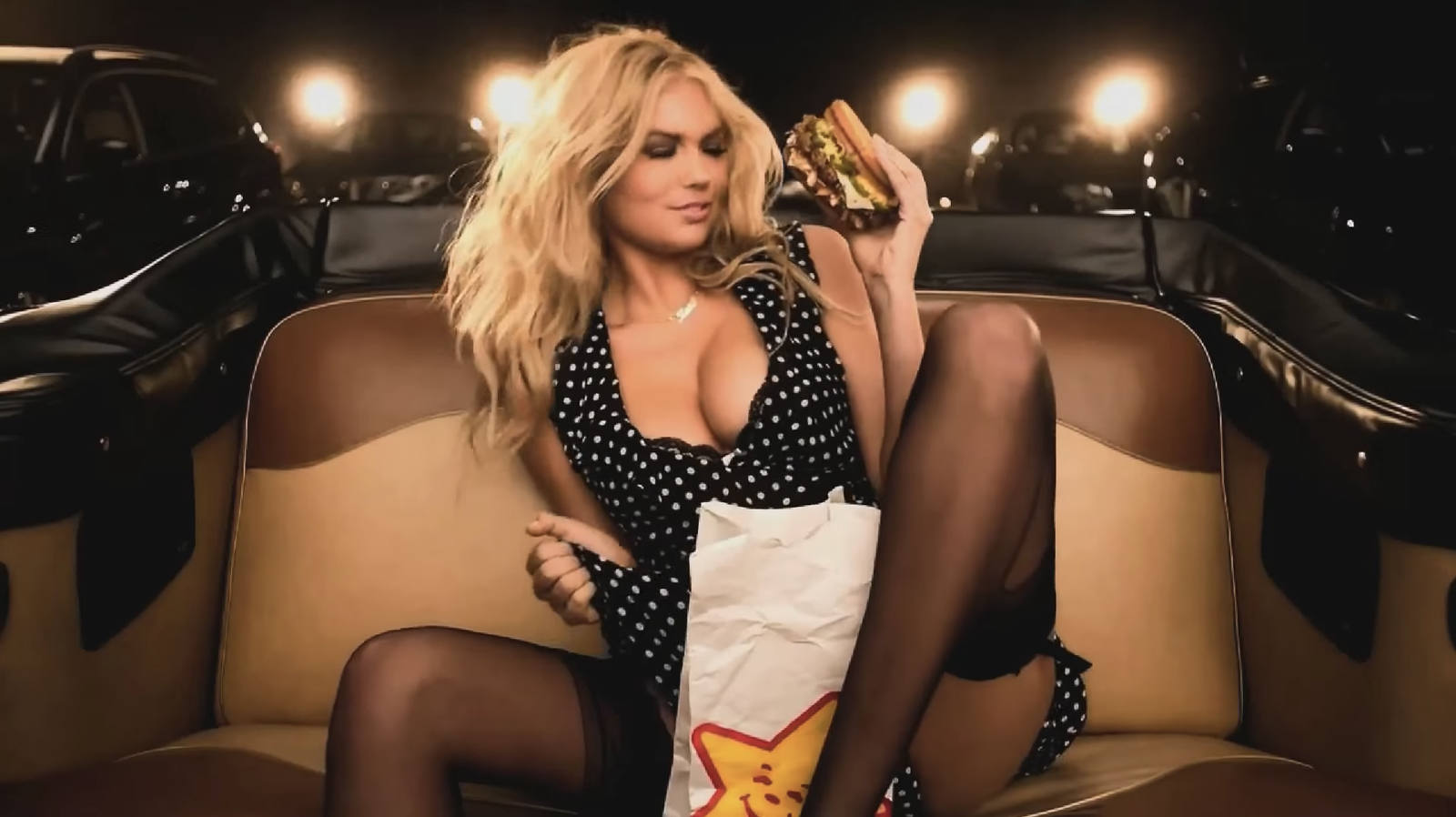
Puzder became CEO of Carl’s Jr. in 2000 and kicked off his “burgers and bikinis” TV commercials in 2005 with Paris Hilton washing a car. Since then, Super Bowl ads have featured Kate Upton eating a burger and stripping to “Some Like It Hot” and a seemingly undressed Charlotte McKinney.
"I like our ads. I like beautiful women eating burgers in bikinis. I think it's very American," Puzder said in a 2015 interview with Entrepreneur. "I used to hear brands take on the personality of the CEO. And I rarely thought that was true, but I think this one, in this case, it kind of did take on my personality."
Kim Kardashian starred in one ad for a salad. “Kim really couldn’t eat the burgers,” Puzder told the Associated Press. “Luckily, we had a salad we were promoting, so we used Kim in the salad ad. But if we had not been promoting a salad, we probably never would’ve done an ad with Kim, because she wasn’t good at eating the burger.”
One major motivation for the commercials is free or "earned" media, according to Puzder. "If you don't complain, I go to the head of marketing and say, 'What's wrong with our ads?'" he has said.
As his name was being floated as a possible member of the Trump administration, Puzder told a Fox News anchor that serving in the cabinet would be “the most fun you could have with your clothes on.”
On the Strangulation of Business by the Serpent of Minimum Wage Hikes
Says it all.
On Immigration Reform
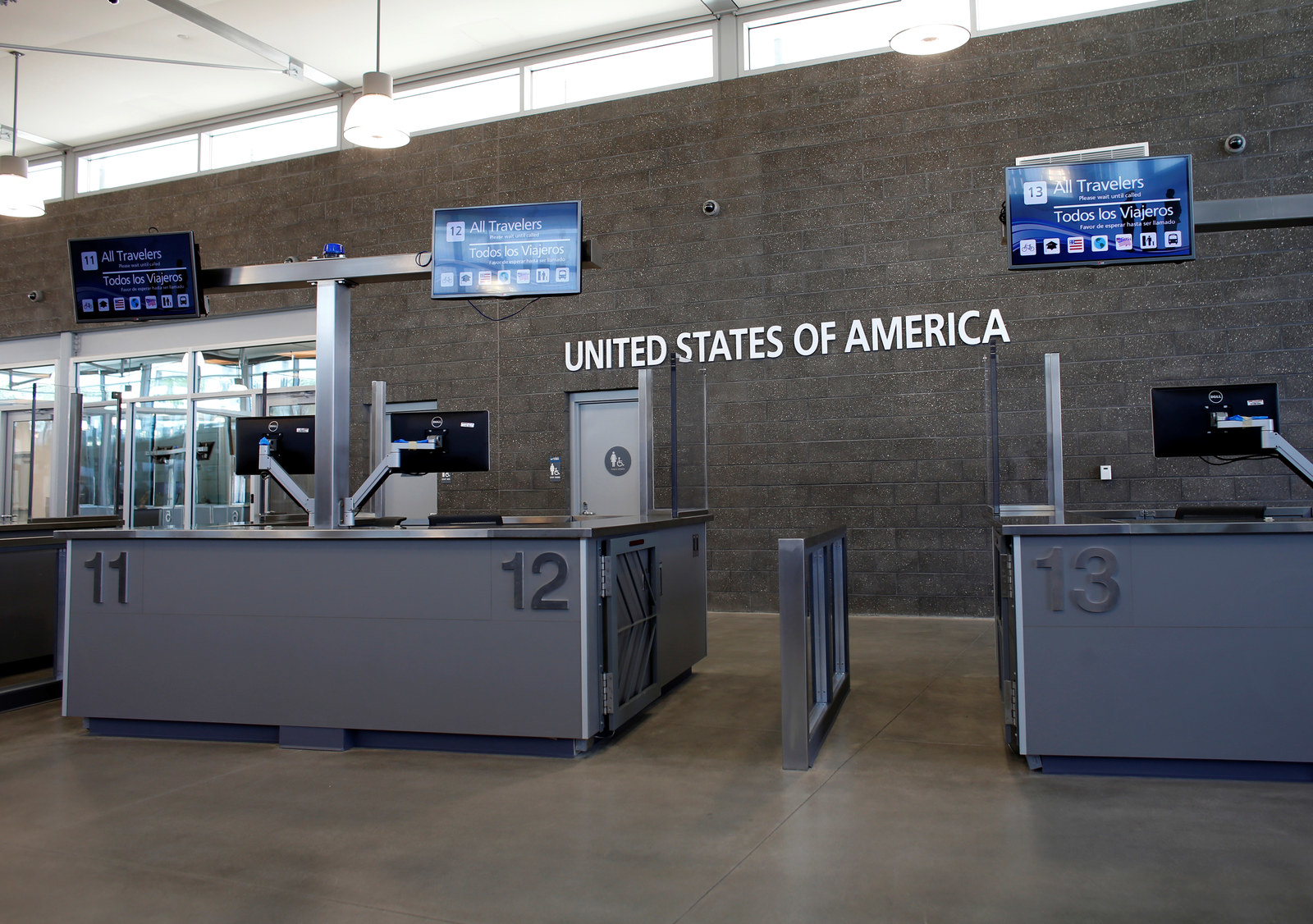
As an employer of many immigrant workers, Puzder has spoken in favor of immigration reform. Speaking at the American Enterprise Institute in June 2013, Puzder sympathized with undocumented workers in California.
"People that are here illegally have to live in the shadows," he said. "They may have children that are US citizens. They're married, they've got families, they've got houses. They may be working as maids without citizenship here, but they’ve got jobs, they know people, they’ve really integrated themselves into society. But they’ve got to live in the shadows. They've got be afraid if they’re driving too fast, they’re going to get picked up for speeding and end up being deported.”
He added, "If we had immigration reform and were able to hire these people who really want to work, we’d have a more diverse, incentivized and productive workforce. We'd have access not only to low-skilled workers in our business but the high-skilled workers everyone talks about. You'd have consumption from these individuals because obviously if they're working, and they're making money, supporting their families, they're out there buying things. You'd really reinforce this idea that the United States is the land of opportunity, the land of entrepreneurial vision — and that could use some reinforcing."
On Capitalism and Trump
“The only thing that stands between us and a victory by the regulators, which used to be called the oppressors, is us,” Puzder said on an economic panel at the Centennial Institute in July.
“These are the values. Quite honestly, this is why Donald Trump was nominated. It’s interesting. He’s a rich guy — they don’t resent him, they don’t envy him. They don’t think he’s some arrogant, rich guy. They see him as a successful guy, and they want to emulate him and be like him," he said. "That’s the America I grew up in, I remember, I’m willing to stand up in and defend.”
In a Politico interview in November, Puzder recounted first meeting Donald Trump, and his frenetic lack of pretense.
“Trump walks in the room — there are like six, seven us around the table. Puts his hand on the table and says, ‘Who do you think I should pick for vice president?’” Puzder said. “I swear to God, I think if a guy walked in delivering sodas to the room, he would have asked him … He wasn’t just going to listen to people who were just in the inner circle or influential. This guy was listening to everybody. Not strangely, he heard things the rest of us didn’t hear.”
On CNBC in October, Andrew Ross Sorkin pressed Puzder on Donald Trump’s comments about women, asking if any of Trump's controversial comments would be considered violations of Carl’s Jr. and Hardee’s anti-harassment policies.
“It depends on whether they’re true,” Puzder said. “First of all, we’ve got two candidates here that aren’t perfect people. I view one of them as a very corrupt, very dishonest, power-hungry candidate,” calling Clinton a “Richard Nixon type.” In contrast, Puzder called Trump an “alpha male, John Kennedy, Bill Clinton type candidate,” and said, “I’m not here to talk about the tabloid aspects of the campaign.”
On Holding Fast-Food Chains Responsible for Their Workers
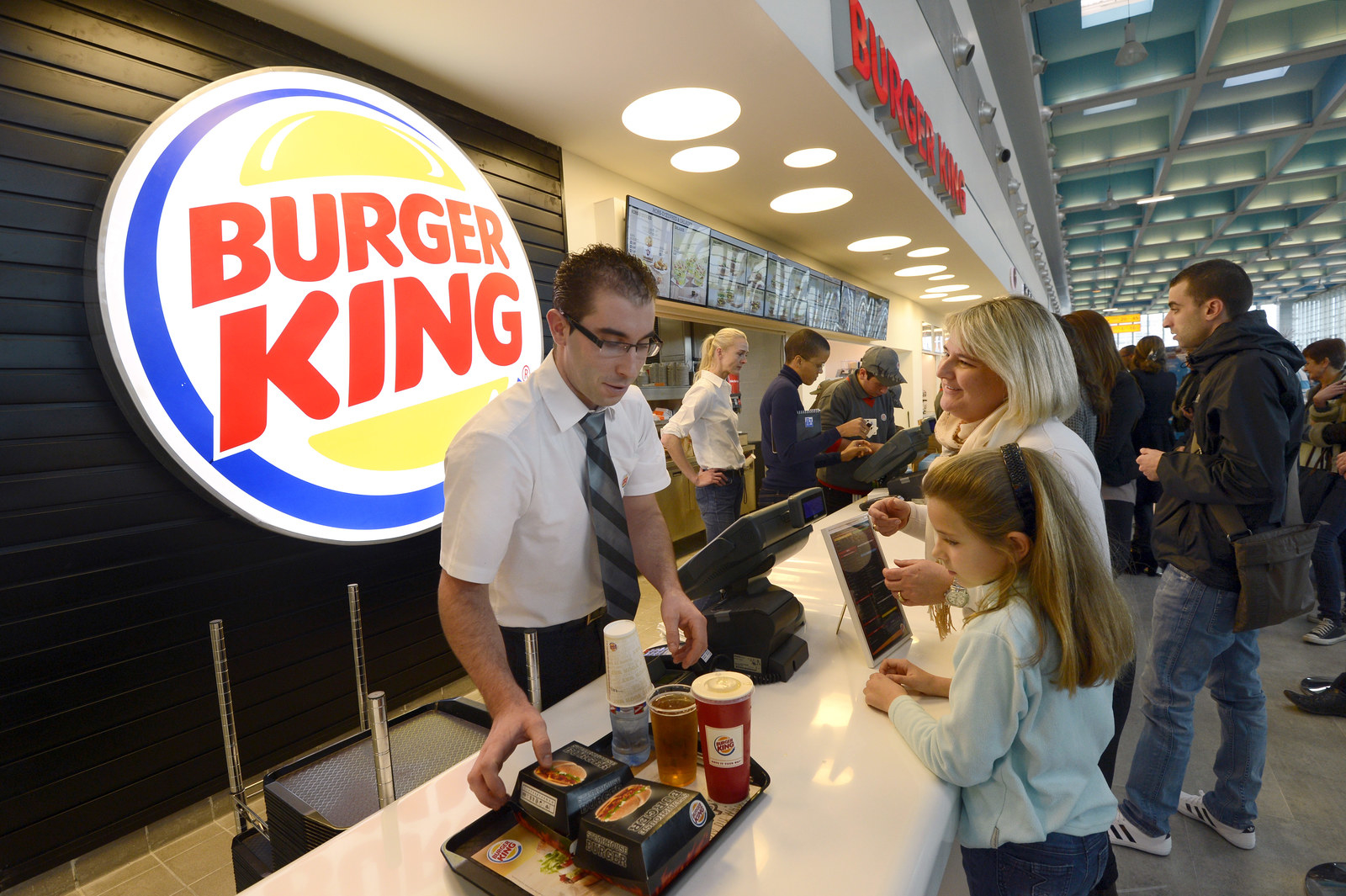
Puzder has been a vocal opponent of attempts to consider franchise restaurant operators, like Hardee's and Carl's Jr., “joint employers” of their restaurant staff. The definition, recently expanded by the National Labor Relations Board, has massive implications for the fast-food industry, which currently benefits from workers being classified as employees of franchise restaurant owners, not the corporations that control them.
If fast food giants were considered joint employers of their restaurant workers, the corporations could be held financially liable for labor law violations in their restaurants. Here’s Puzder on how it will change the game for employers:
“Sex discrimination, race discrimination, wage and hour law violations — the franchisors will have to put people in every franchise restaurant to make sure laws aren’t being violated, because now they’ll be responsible for their franchisee’s conduct. And that just isn’t going to work."
